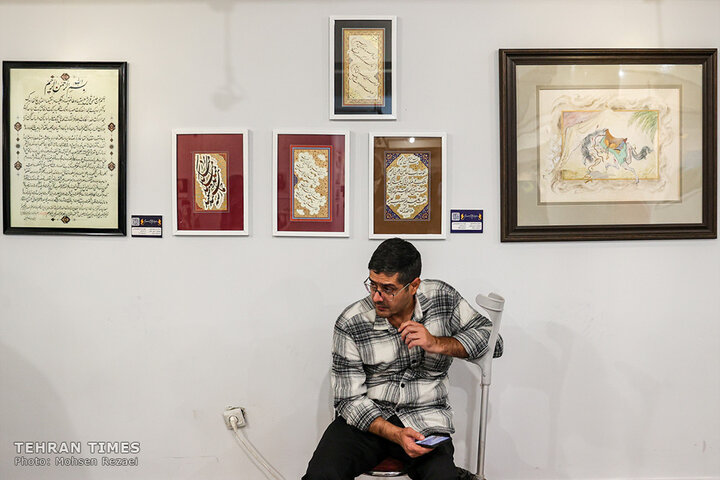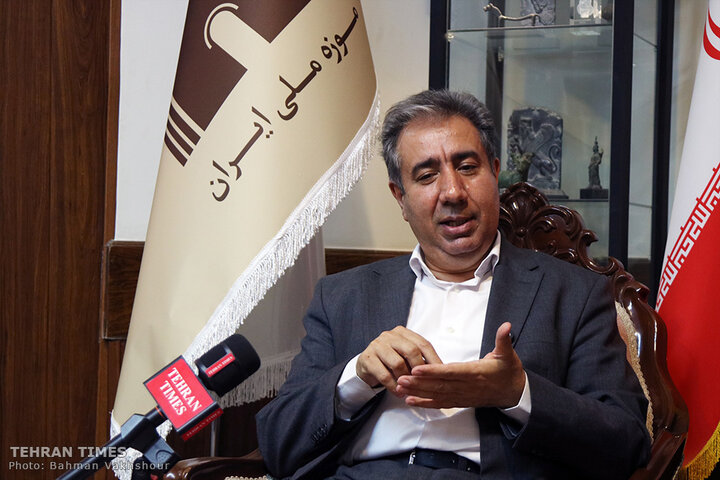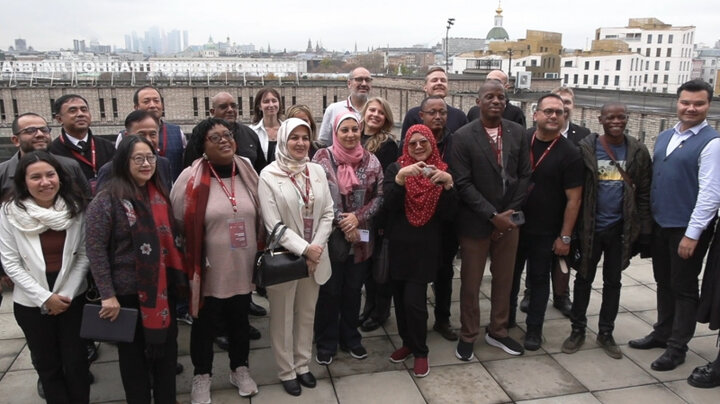-
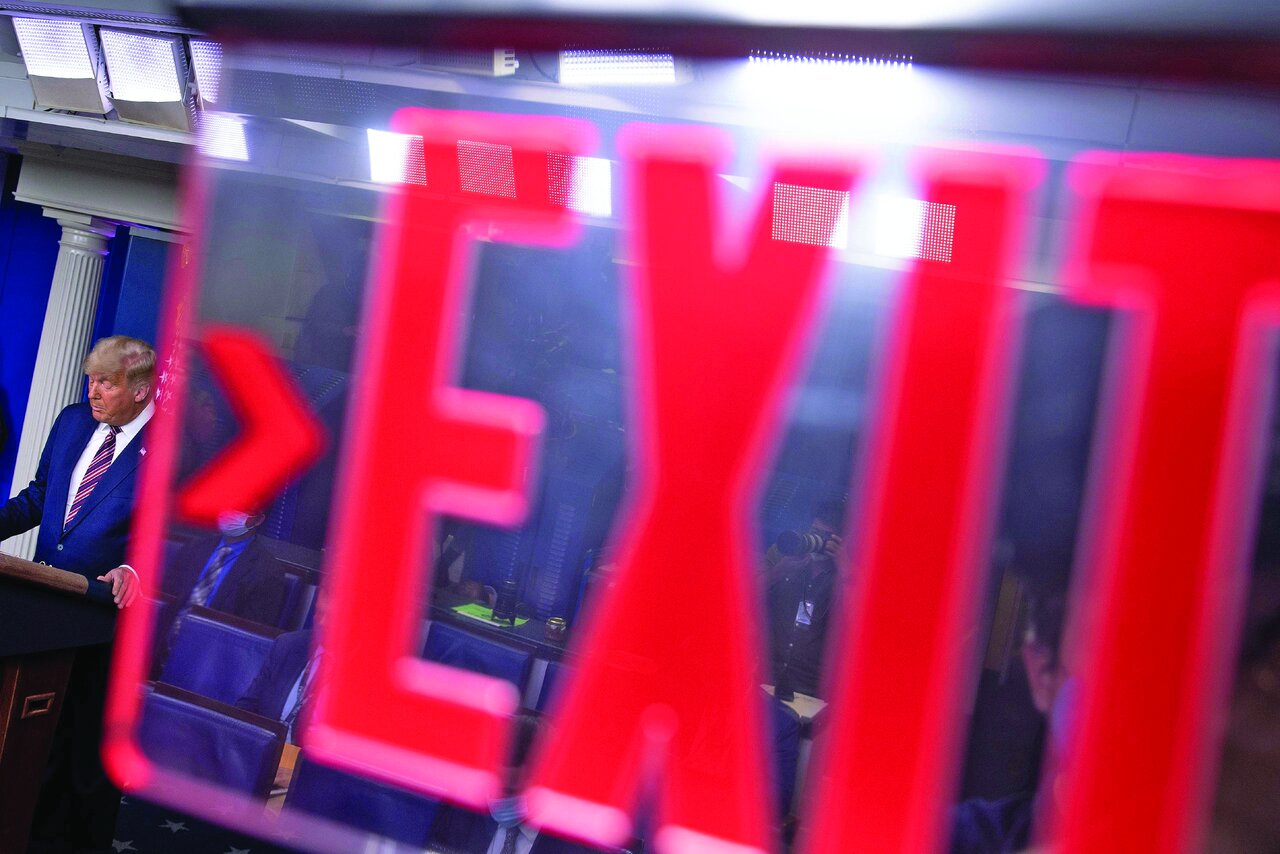 2025-11-05 20:13
2025-11-05 20:13
By Mona Hojat Ansari
Why another Iran-US agreement is far off
TEHRAN – Iranian Foreign Minister Abbas Araghchi was bombarded with questions about a potential new round of nuclear talks with the U.S. as he exited a cabinet meeting and encountered journalists waiting outside.
-

By Shahrokh Saei
Mamdani’s win lays bare failure of U.S. capitalism
TEHRAN – Just a year ago, Zohran Mamdani was little known outside Queens, the New York City borough he represents. Now, at just 34 years old, he has made history as the new Mayor of New York City — the largest and most influential city in the United States.
-

By Wesam Bahrani
U.S. pressures Iraq ahead of elections
TEHRAN – U.S. pressure to disarm Iraq’s resistance factions is intended to influence elections and thereby undermine the country’s sovereignty and popular security forces.
-
By Sondoss Al Asaad
Washington’s truce mechanism aimed to turn Lebanon into next Syria
BEIRUT — Political and military developments in Lebanon are accelerating amid increasing U.S.-Israeli pressure and attempts to redraw the rules of engagement in South Lebanon through the five-member committee tasked with monitoring the implementation of the ceasefire between Lebanon and the Zionist entity.
-

By Elaheh Tahmasebi
Why Venezuela’s fate matters to Iran
TEHRAN – Could a U.S. attack on Venezuela serve as a prelude to a future strike against Iran? This is one of the most frequently asked questions in Iranian circles today regarding the fate of Caracas and the Maduro government.
-
By Garsha Vazirian
Trump’s gilded cage and the sycophancy doctrine
A global playbook of flattery fraying statecraft’s spine with spectacles and shadows
TEHRAN – The spectacle has become the point. Fighter jets escort Air Force One. Prime ministers arrive with golf relics and gold-leaf baubles. Foreign leaders orchestrate airport pageants and shield Donald Trump from protesters — not to salute partnership but to flatter a temperament that prizes adulation above counsel.
Politics
-
Poles landing on Iranian shores in 1942. But where did they come from?
TEHRAN – Germany's attack on Poland on 1 September 1939 marked the beginning of World War II. On 17 September 1939, the Red Army crossed the borders of the Republic of Poland, thus implementing the provisions of the Hitler-Stalin Alliance: the Ribbentrop–Molotov Pact – an agreement between the USSR and the German Reich.
-
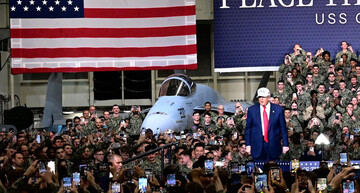
Iran urges UN to take swift action over US president’s threatening remarks
TEHRAN – Iran’s ambassador to the United Nations has urged the world body to take urgent action following statements by U.S. President Donald Trump about resuming nuclear weapons testing, describing them as a grave threat to global peace and a violation of international law.
-
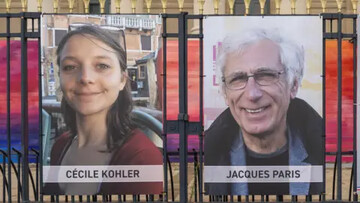
French detainees released on bail in Iran as diplomatic talks progress
TEHRAN – Iran has released two French nationals who had been detained on charges related to national security, the Iranian Foreign Ministry announced on Tuesday.
Sports
-

Iran, Afghanistan futsal teams share the spoils: Riyadh 2025
TEHRAN – Iran futsal team were held by Afghanistan in a 2-2 draw in Group B of the 2025 Islamic Solidarity Games (ISG) on Thursday.
-
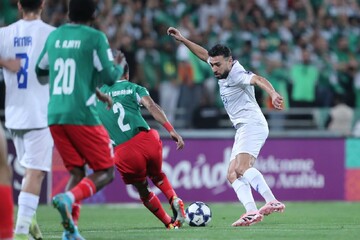
Al Wehdat, Esteghlal share the spoils at 2025/26 ACL Two
TEHRAN - Al Wehdat of Jordan and Iran’s Esteghlal settled for a 1-1 draw in their AFC Champions League Two 2025/26 Group A tie on Wednesday.
-

Iran’s men’s volleyball edge Bahrain: Riyadh 2025
TEHRAN – Iran’s men’s volleyball team defeated Bahrain 3-2 (25-21, 22-25, 25-16, 22-25, 15-7) at the 2025 Islamic Solidarity Games (ISG) on Wednesday.
Culture
-

Shahram Mokri’s “Black Rabbit, White Rabbit” to attend festivals in Saudi Arabia, Singapore
TEHRAN – The latest film by the Iranian director Shahram Mokri “Black Rabbit, White Rabbit” will compete in two international film festivals in Singapore and Saudi Arabia.
-

20th Resistance Theater Festival set to promote culture of sacrifice, justice
TEHRAN- The call for the 20th International Resistance Theater Festival has been officially announced, inviting international artists to collaborate in this edition of the event.
-

“CHAOS: The Manson Murders” to be reviewed in Tehran
TEHRAN- The Cinematheque of the Iranian Artists Forum (IAF) will screen American film director Errol Morris’ 2025 documentary film “CHAOS: The Manson Murders” on Sunday.
Economy
-

Iran’s railway emerges as key transit link between India, Russia
TEHRAN – Iran’s railway network is set to play a central role in connecting Mumbai to Moscow through the International North–South Transit Corridor (INSTC), as senior Iranian and Indian officials push to accelerate regional transport cooperation.
-

Iran, Kuwait move to clear trade barriers in joint committee talks
TEHRAN– Iran and Kuwait have agreed to step up efforts to remove trade obstacles and strengthen bilateral exchanges during the two countries 13th Joint Economic Committee meeting held in Kuwait.
-
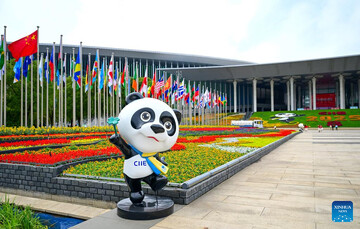
Shanghai CIIE: A dynamic platform showcasing Iran-China partnership
BEIJING – As the 8th China International Import Expo (CIIE) unfolds in Shanghai, its significance extends beyond being a premier international trade event. It represents a crucial bridge for deepening the comprehensive strategic partnership between Iran and China.
Society
-
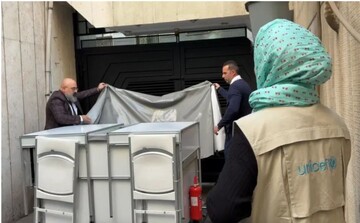
UNICEF helps strengthen Iran's emergency health response
TEHRAN – In an effort to ensure Iran’s health system is strong and ready to protect everyone, especially the most vulnerable, when a crisis strikes, the United Nations Children’s Fund (UNICEF) has procured portable tents and rapid-response backpacks.
-

Over 1.4 million people donate blood in 7 months
TEHRAN – A total of 1,435,183 Iranians donated blood in the first seven months of the current Iranian year, which started on March 21, according to an official with the Blood Transfusion Organization.
-
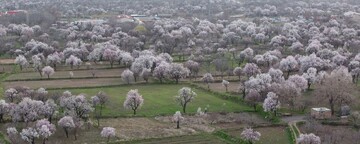
FAO awards GIAHS certificate to Qazvin's Baghestan
TEHRAN – The ancient traditional gardens of Qazvin (Baghestan) has received the Globally Important Agricultural Heritage Systems (GIAHS) certificate awarded by the Food and Agriculture Organization (FAO).
Tourism
-

Iran shines at Malaysia’s Culture and Food Exhibition
TEHRAN--An exhibition showcasing Iranian culture and art was held in the heart of Malaysia, where Iran earned a top ranking among 45 participating countries.
-

Visit to museums free for teenagers during November 6-7
TEHRAN—Visiting all museums and cultural-historical collections in the country will be free for teenagers and their parents on Thursday and Friday (November 6-7), said Deputy Cultural Heritage Minister Ali Darabi.
-
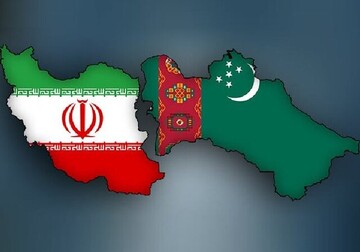
Turkmen bloggers to be in Iran's free zones to introduce tourist attractions
TEHRAN—A joint meeting was held between the Ambassador of the Republic of Turkmenistan and the Deputy Head of the Secretariat of Free Zones High Council, in which agreements were reached to develop cultural and tourism interactions between the free and special economic zones of Iran and Turkmenistan. It was decided to plan for the presence of Turkmen bloggers and influencers in Iran's free zones to introduce the tourist attractions of these areas in the cyberspace.
International
-

Mamdani’s win lays bare failure of U.S. capitalism
TEHRAN – Just a year ago, Zohran Mamdani was little known outside Queens, the New York City borough he represents. Now, at just 34 years old, he has made history as the new Mayor of New York City — the largest and most influential city in the United States.
-

U.S. pressures Iraq ahead of elections
TEHRAN – U.S. pressure to disarm Iraq’s resistance factions is intended to influence elections and thereby undermine the country’s sovereignty and popular security forces.
-

Washington’s truce mechanism aimed to turn Lebanon into next Syria
BEIRUT — Political and military developments in Lebanon are accelerating amid increasing U.S.-Israeli pressure and attempts to redraw the rules of engagement in South Lebanon through the five-member committee tasked with monitoring the implementation of the ceasefire between Lebanon and the Zionist entity.
Video Comment
-
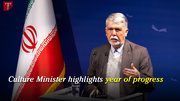
Culture minister highlights year of progress in arts, global image enhancement
-

Gazan Journalists attacked by Israel
-

Brother of Iranian scientist murdered in Israeli strike speaks out
-

Footage shows Israel hit a kindergarten in Tehran
-
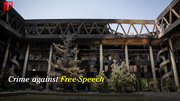
Delegates and ambassadors from 28 countries visited the IRIB building
Most Viewed
-
15190
-
Iran volleyball star Saber Kazemi passes away
-
Poles landing on Iranian shores in 1942. But where did they come from?
-
Mamdani’s win lays bare failure of U.S. capitalism
-
Why another Iran-US agreement is far off
-
Why Venezuela’s fate matters to Iran
-
Iran’s railway emerges as key transit link between India, Russia
-
Iran urges UN to take swift action over US president’s threatening remarks
-
U.S. pressures Iraq ahead of elections
-
Iran, Kuwait move to clear trade barriers in joint committee talks
-
Tehran seeks to deepen bilateral ties with Islamabad: Iran parliament speaker
-
Trump’s gilded cage and the sycophancy doctrine
-
Iran, Afghanistan futsal teams share the spoils: Riyadh 2025
-
Washington’s truce mechanism aimed to turn Lebanon into next Syria
-
French detainees released on bail in Iran as diplomatic talks progress


